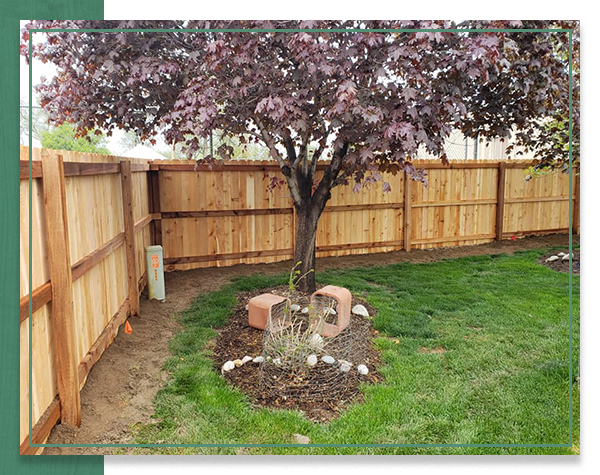Project Tips
Northern Colorado's Fence & Deck Experts

Fence And Deck Installation Tips
Whether your next project is a privacy fence, gate, pergola, or custom deck – we want to make sure you get the most out of your investment. We’ve compiled a list of basic steps you can take to ensure the home improvement process goes as smoothly as possible. As always, feel free to contact us with any questions.

RESEARCH YOUR PROJECT
Before getting formal bids from contractors, spend a few minutes online researching your project. You can look at different styles of fencing, different material options, and certain common practices surrounding the installation process. It’s good for the contractor (and you!) to have some common understanding when it comes time for bids. This will also protect you from being sold things you don’t want – or not getting features you do want.
Take some rough measurements for your fence or decking project and call local contractors to ask for a “rough estimate”. Obviously the final number could be much different, but it gives you a good idea where your budget needs to be for certain projects. You can use those rough estimates to adjust your project goals where necessary. It saves time for both parties – and streamlines the rest of the process.
“I typically spend 1-3 hours designing a deck project and compiling various material costs. Each revision after that takes another 30 minutes or so. I’ve had a few customers whose budget expectations were totally unrealistic – that’s a big waste of time for both parties. Obviously I don’t hold it against them – but it’s definitely avoidable. I try to get a feel for their cost expectations during the estimate process, but sometimes that’s hard to do without being impolite.”
COMMUNICATION
Throughout each part of the process, communicate your expectations clearly. It’s good for both parties to have a common understanding about project goals. Be clear about your design expectations, quality expectations, your schedule, and desired deadline. You can even discuss the logistics of the project – how the job will be started, different phases involved in the project, and how finishing details will be handled.
ASK QUESTIONS
This may seem obvious, but the truth is, sometimes people don’t know what questions to ask. Initial research can help you prepare some specific questions for the estimate process. Don’t feel embarrassed about asking – many contractors will enjoy talking about their trade with you.
- Asking questions is a key part of ensuring the project goes your way. Start with simple questions and then discuss details. Even if you don’t know much about a specific trade, you can ask a follow up question based on the answer to the first question. Here’s an example:
- What kind of material are you going to use? Wood.
- What kind of wood? Cedar
- Why is cedar a good choice? Cedar is naturally weather resistant.
- Are there types of wood that aren’t? Hem-fir and pressure treated lumber are not recommended for fencing.
- Many people assume that manufactured products are all equal. But like anything else, these products come in a range of cost and quality. Let’s say you’re building a deck with composite decking.
- What brand of composite decking do you use? XYZ
- What is the warranty on that material? There is a limited lifetime warranty on this product.
- Are there products with a better warranty? Product ABC is more expensive, but it has a lifetime transferable warranty.
*When it comes to manufactured materials, the extent of the warranty is often a good indication of the quality you’re getting.
RESEARCH – ROUND 2
So you’ve received a handful of estimates and you’re ready to move forward with the project. When it comes to selecting a bid, price isn’t the only thing to consider. Do some research on contractors you’re considering hiring. Look at their reviews or ask for referrals and check out their portfolio. If something doesn’t feel right, go with your gut.
- Bids are commonly divided into “cost of materials” and “cost of materials”. It’s wise to withhold some portion of the cost of labor until the job is 100% completed – this is your leverage in the deal. It keeps the contractor accountable, and protects you from unnecessary headache. No one works for free, so be wary of disproportionately low cost of labor.
- Research local requirements for your project. Different cities and communities have different policies regarding permits or HOA approval for fences, decks, pergolas, and more. Make sure your goals match up and paperwork gets done.
“On small jobs a contract may not be necessary. Most contractors just want to make an honest living – but there are a few who will take advantage of people when they can. If you feel nervous about the deal for any reason, get it in writing and get it signed.”
Sales Catalog (PDF) West-Tech Vinyl (PDF)
Ready to get started?
Schedule a free estimate with us today
